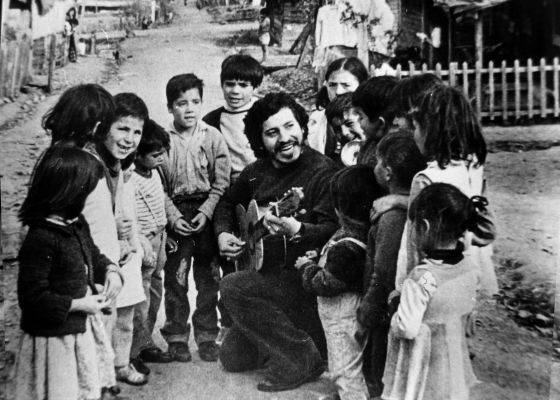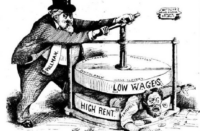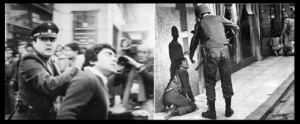Forty-five years ago, on 11 September 1973, the Chilean military, under the command of General Augusto Pinochet and backed by the United States, overthrew the democratically elected socialist government of Salvador Allende.
Allende, who had won the election in September 1970, was faced even before taking office with the enmity of the Chilean right, and the US government. The CIA planned a coup almost immediately after his victory.
Allende’s platform had stood for radical transformation: the redistribution of land, the nationalisation of major corporations (particularly the American-owned copper holdings), and fundamental changes in the provision of health, education, and housing. His government was well into this programme when initially middle-ranking military officers and later businessmen and generals put a violent end to Chile’s socialist reform.
During the Pinochet dictatorship (1973–1990), 3,095 people were killed and about 1,000 more “disappeared,” according to Chile’s Truth and Justice Commission. Bodies are still being found today.
Victor Jara, communist and celebrated singer, was one of about five thousand people arrested in the immediate aftermath of the coup and taken to the Chile Stadium in the capital. There he was tortured and his hands broken. Even at that horrendous hour Jara resisted and tried to give hope to those about to die by singing “Venceremos,” the unofficial anthem of the Unidad Popular (People’s Unity) movement, and the prisoners sang with him.
Along with many of his compatriots, Jara was murdered in this stadium. When Joan Jara went to identify her husband’s body she found it riddled with bullets and the wrists and neck broken and twisted.
Victor Jara was born eighty-five years ago, on 23 September 1932, into a family of farm workers. He learnt Chilean folk traditions from his mother, Amanda, learnt to play the guitar and piano, became a singer, and joined the Nueva Canción Chilena (Chilean New Song) movement. This began as a small folk club, Peña Los Paras, led by Violeta Parra, an important influence on Jara in the late 1950s. Parra created a new kind of folk music in Chile, combining modern song with traditional forms. She established peñas, musical community centres. These launched many revolutionary artists.
Victor’s widow, Joan Jara, comments: “The spring of his songs lay in a deep identification with the dispossessed people . . . a deep awareness of social injustice and its causes and a determination to denounce such injustice . . . in addition to the need to do something to change things.”
Victor Jara was murdered on 16 September 1973, at the age of forty. To his dying breath he used his art to speak on behalf of the people. His last song was smuggled from the stadium of death by survivors:
There are five thousand of us here
in this small part of the city.
We are five thousand.
I wonder how many we are in all
in the cities and in the whole country?
Here alone
are ten thousand hands which plant seeds
and make the factories run.
How much humanity
exposed to hunger, cold, panic, pain,
moral pressure, terror and insanity?
Six of us were lost
as if into starry space.
One dead, another beaten as I could never have believed
a human being could be beaten.
The other four wanted to end their terror
one jumping into nothingness,
another beating his head against a wall,
but all with the fixed stare of death.
What horror the face of fascism creates!
They carry out their plans with knife-like precision.
Nothing matters to them.
To them, blood equals medals,
slaughter is an act of heroism.
Oh, God, is this the world that you created,
for this your seven days of wonder and work?
Within these four walls only a number exists
which does not progress,
which slowly will wish more and more for death.
But suddenly my conscience awakes
and I see that this tide has no heartbeat,
only the pulse of machines
and the military showing their midwives’ faces
full of sweetness.
Let Mexico, Cuba and the world
cry out against this atrocity!
We are ten thousand hands
which can produce nothing.
How many of us in the whole country?
The blood of our President, our compañero,
will strike with more strength than bombs and machine guns!
So will our fist strike again!
How hard it is to sing
when I must sing of horror.
Horror which I am living,
horror which I am dying.
To see myself among so much
and so many moments of infinity
in which silence and screams
are the end of my song.
What I see, I have never seen
What I have felt and what I feel
Will give birth to the moment . . .
In July this year, forty-five years after their crime, eight retired officers were sentenced to fifteen years in prison for Jara’s murder.







